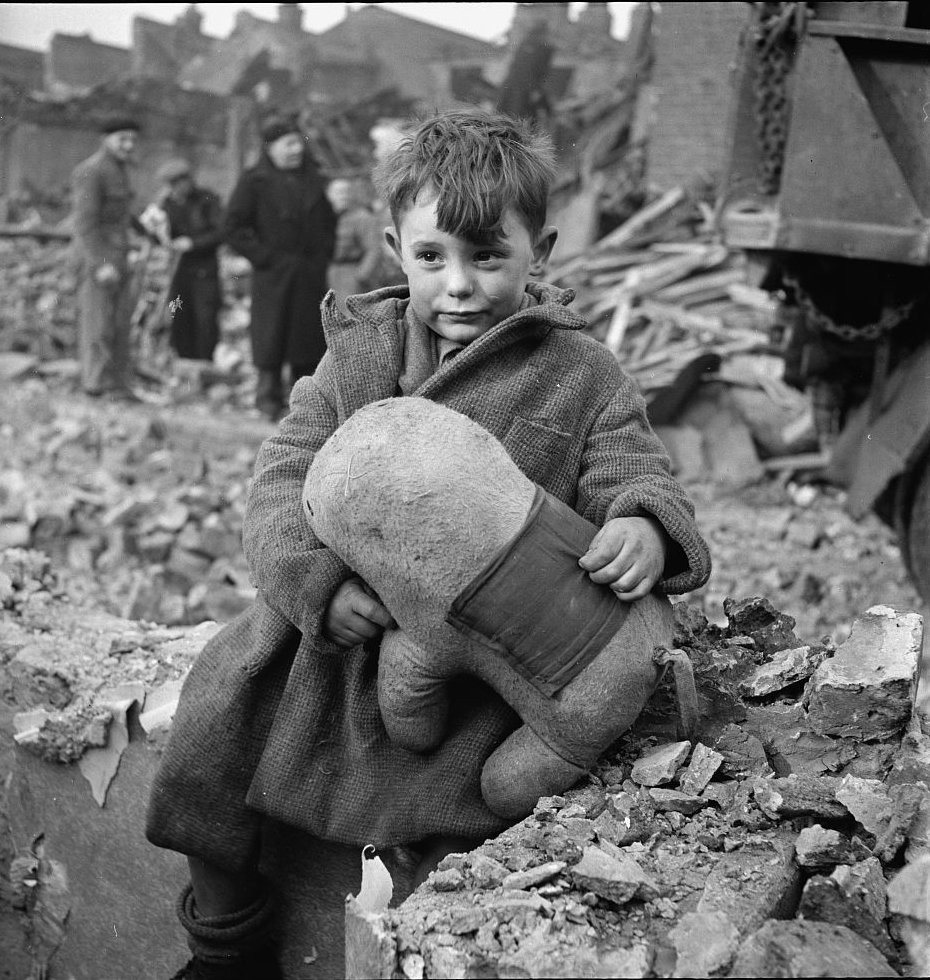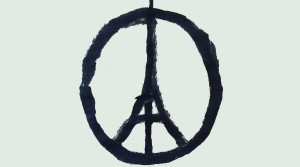I’ve been thinking a lot lately about what gives me life.
In the book, Sleeping with Bread, the authors explain the title with a familiar story from World War II. The massive bombings in England during the war left many orphans starving in the streets. Those fortunate enough to be found were placed in refugee camps, where they received food, health care, and a safe place to live. But many of the children couldn’t sleep at night. Some tossed and turned, others lay there with anxious eyes always open, even though they were assured and re-assured that they were in good hands. A psychiatrist listened to the children, and discovered that they were afraid if they fell asleep, they might wake up once again homeless and without food. So he came up with an idea. He suggested giving each child a piece of bread to take to bed with them. The children, clutching their bread through the night, slept soundly, knowing that they ate that day and what they held in their hands ensured that they would eat again tomorrow. They were at peace, holding onto what gave them life.
This book is about finding what gives us life through a spiritual practice called “the examen,” created by St. Ignatius of Loyola, the founder of the Jesuit order. It’s is a tool for discernment, and if regularly practiced, the examen provides direction in our lives. The practice goes like this: At the end of every day we ask ourselves, “For what moment today am I most grateful? When did I feel most connected to God and the world around me? When did I feel most alive?” Then we ask the question, “For what moment today am I least grateful? When did I feel most disconnected from God and the world around me? When did I feel the life draining out of me?” Doing this spiritual practice over time, patterns begin to emerge. The idea is to move toward the things that give you life, while at the same time moving away from the things that drain life from you. It’s the 16th century version of “Follow Your Bliss” before Joseph Campbell ever coined that phrase.
What gives us life?
In the purely literal sense, we need food, water, and shelter to live – everything the children received in the refugee camps. But as human beings we want more. We want to belong. We want to make an impact on the world around us. We want to control our destinies. And we want the power to make all that happen.
So what gives us life?
I feel for the crowd that came looking for Jesus in our Gospel story. Just the day before, Jesus fed all of them real food by blessing two barley loaves and five fishes. So the next morning, they all show up hoping for a bit of breakfast – and Jesus turns all metaphorical on them. It’s hard to hear a preacher wax on about being the Bread of Life, when you are holding a hungry child and your own blood sugar is rock bottom.
Likewise, it’s hard to picture what gives us life in a larger sense when our bellies are empty, when we need a job, when the rent is due, when we are lonely. But just like Jesus asked the hungry crowd in Galillee, he is looking into our anxious faces and asking us to do just that: What, beyond the immediate needs of your health, gives you life?
In my relatively few years of experience, this much I know is true: What gives us life has to be more than following our bliss or hoping for one happy day when we’ll finally feel fulfilled. Our Old Testament story bears this out. Absalom is the poster child for following his bliss, acting on his every desire, and believing in himself way more than he should have. This is where the Gospel of Health and Wealth falls apart. Absalom is self-actualized, self-affirmed, and self-appointed. But, he doesn’t find life – he only finds death.
What if the piece of bread we are holding onto for life is isn’t feeding us, but is, in fact, poisoning us?
Absalom’s story begins when King David takes the throne away from Saul as prophesied by Samuel, and becomes ruler of united kingdoms of Judah and Israel. And though David is described as a champion, a hero, and a man after God’s own heart, he ends up misusing his power by taking Bathsheba and having her husband killed. David’s two sons, Amnon and Absalom, inherit their father’s hunger for power. Amnon, heir to the throne, misuses his power by taking and raping his half-sister Tamar, then leaving her destitute, with no husband and no children. David does nothing to punish Amnon or to relieve Tamar’s misery, so Absalom misuses his power by killing Amnon to avenge Tamar. Absalom now looks like the champion that David is not. Coincidentally, Amnon’s murder is quite convenient for Absalom, since he is next in line for the throne.
Absalom is banished for the murder of his brother, but David relents and brings him home – after all this is his son who he loves. But Absalom isn’t satisfied with being the king’s son, he is hungry for more. And shouldn’t he go for it? He is everything that David is not: He’s young, he’s strong, he’s attentive, he’s decisive. He’s gorgeous and his hair is die for. And the people love him. He looks like a king, he acts like a king – it’s only a matter of time before he determines that he should be king.
David knows this path leads to death. He’s been there before. The old king remembers Bathsheba, he remembers her husband Uriah; he remembers his own child dead in the arms of the woman whose husband he killed. David knows that Absalom stands ready to kill him. David will lose his kingdom or he will lose his son. The victory of one means certain death for the other, so he bargains for mercy. Every warrior in David’s army, from the highest lieutenant to the lowest foot-soldier hears his plea. “Deal gently, for my sake, with the young man Absalom.”
They do not deal gently with Absalom. Death comes from the hand of Joab, one of David’s commanders. Joab knew the king would forgive his son, just as he knew his son would never stop trying to take the throne. After absolute defeat and trying to escape, Absalom’s beautiful head with his beautiful hair get caught in an oak tree, and as he hangs, suspended between heaven and earth, Joab thrusts three spears through his heart.
The story of Absalom reads a lot like the popular series, Game of Thrones: everyone vying for a crown, betrayal as easy as breathing, and vengeance driving every motive. Hunger for power leads to feasts of blood and war and death – leaving no one satisfied and everyone destroyed. Back in Jerusalem the kingdom is saved; but shouts of victory are silenced, as the city shudders with the cries of a father over the wasted life of his precious son.
St. Ignatius of Loyola was a lot like Absalom. He was rich and cocky. He lived for war and fame, and when there wasn’t a crusade to fight, he challenged anyone he could to duels so he could prove his prowess with a sword and make a great name for himself. But then he was badly wounded in battle. Unlike today, convalescing from serious injury in the sixteenth century took years of healing without antibiotics or modern pain relief. Ignatius had a lot of time to think – a lot of time to read and reflect on his life. The examen practice grew from his questions and his reflections during this convalescence – because he discovered that following his bloodlust and striving for power did not bring him life. It brought him to the brink of death. He found that he felt most connected to God and to the universe when he helped others, when he lived simply, and when he embraced peace.
The Bread of Life doesn’t satisfy our hunger for power – it is the antidote for it. For no one is ever satisfied with a little power, and no one is ever minimally corrupted by it. The Bread of Life is Jesus – not as a king, or a warrior, or a politician – but Jesus, the God who came as a baby and gave up his power to be one of us, who shrugs off fame to become a marked man, who releases control to the point he is nailed to a cross. Power is most powerful when it is shared with and held accountable by those who are powerless.
We know this. As Christians we were raised on it. And yet, we as a people consistently choose hold on to what brings us death. We make war – not just with our neighbors abroad, but with ourselves. We misuse our power when innocent men and women of color in this country continue to die by the hands of those sworn to protect us. We misuse our power when women are threatened, beaten, and now gunned down in theatres because angry men feel threatened by them. We misuse our power when we take bread out of the mouths of hungry children because it is politically expedient to do so. When peace becomes a dirty word and tolerance becomes anathema in our democracy, I can assure you that no one will be satisfied, even when blood runs through our streets.
What gives us life isn’t about being right or being passionate or being influential or being a player. The Bread of Life isn’t about God giving us a bit of brioche to make our lives a little more tasty. It’s about taking in and taking on the example of Jesus – his humility, his service, his compassion. It is feeding the hungry with more than metaphors, healing the sick with more than prayers, housing the homeless with more than promises. The Bread we hold onto is the precious son who sacrificed everything so all can, in the here and now, hope for tomorrow, and so we can hope for the coming kingdom in the great beyond.
What gives us life? Are we holding onto the Bread of Heaven or are we holding onto that which is poisoning us? Are we connecting to God and to our neighbor or are we making war? Are we healing or are we hurting?
As we come to this table where we take into ourselves the body and blood of our Lord Jesus Christ, let us search our hearts, let us release everything that makes us so afraid, and let us feed on what gives us life.
Amen.
Preached at Westminster Canterbury Retirement Community on August 6, 2015. Lectionary texts II Samuel 18:5-15, 31-33 and John 6:35-51.



Average Rating